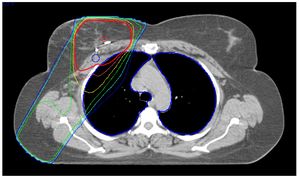Germany's political climate has seen significant upheaval as the Bundestag recently rejected a controversial immigration bill, marking another chapter in the controversial rise of the far-right Alternative for Germany (AfD). The bill, presented by the conservative Christian Democratic Union (CDU) and its sister party, the Christian Social Union (CSU), was heavily backed by the AfD, but it fell short with 350 votes against and 338 votes for it. The proposed legislation aimed to tighten immigration controls, advocating for strict measures against refugees and illegal immigration amid rising national debates on migration policy.
The vote, which took place on February 1, 2025, revealed deep divisions among parties, particularly with the Social Democratic Party (SPD), the Greens, and the Left staunchly opposing the bill, leading to widespread protests across Germany. Friedrich Merz, the CDU leader and candidate for Chancellor, has made immigration policy central to his campaign, but the rejection of this bill is seen as a significant setback. Merz called the asylum legislation proposal "a priority after the 23 February elections," yet the recent defeat has raised questions about the CDU's strategies.
Adding to the political drama, former Chancellor Angela Merkel publicly criticized Merz's decision to collaborate with the AfD, which traditionally has been isolated from mainstream politics due to its extremist views. Merkel called this collaboration "a wrong decision," emphasizing the importance of maintaining the historical firewall against the far right. "I think it is wrong to give up the promise (of the firewall) and hand over a majority in the Federal Assembly with AfD votes for the first time ever," she stated, indicating her disapproval of the growing normalcy of far-right influence within established conservative factions.
Merkel's intervention is particularly noteworthy as she has largely remained silent since stepping down from her position. Her recent remarks may have fueled discontent within the CDU, with some members supporting the notion of distancing the party from far-right affiliations. Internal debates are intensifying, with moderate members expressing concern over the party’s identity and the dangerous precedent set by collaborating with the AfD.
The CDU has been struggling with its position since the 2015 migrant crisis when Germany saw a significant influx of asylum seekers. Growing anti-immigrant sentiment paved the way for the rise of the AfD, which has capitalized on fears surrounding migration and integration since its inception. With the AfD now polling as the second most popular party just weeks before the general elections, the CDU's strategy around immigration is causing fractures within the party.
Political analysts note the potential repercussions of these alliances, stating they could redefine the German political map. The CDU's strategic choice to work with right-wing forces could alienate moderate voters who value Merkel's legacy of stability and openness. The narrative suggests uncertainty about the future of Germany’s immigration policies and rights of asylum seekers as mainstream parties grapple with the challenge of the AfD's appeal.
Following the Bundestag's decision, Merz expressed dissatisfaction with the SPD and Greens, blaming them directly for the failure of the asylum bill, stating, "This result creates clarity on where we stand (on migration) and where the SPD and the Greens stand." The contentious issue of immigration remains polarizing, as political parties navigate their positions ahead of the elections.
The overall backdrop of German politics is one of increasing volatility and division as traditional parties confront the rising normalization of far-right rhetoric and the realignment of their policies to accommodate shifting public sentiments. The upcoming election scheduled for February 23 will undoubtedly test the resolve of the mainstream parties and their strategies to counteract the AfD's growing presence.
With the stakes high, the CDU faces existential questions about its identity and future electoral success. Will the party lean back toward its centrist principles, or continue down the path of rightward collaboration? The decision made during these turbulent times will shape Germany’s political future and the handling of immigration policies for years to come.



